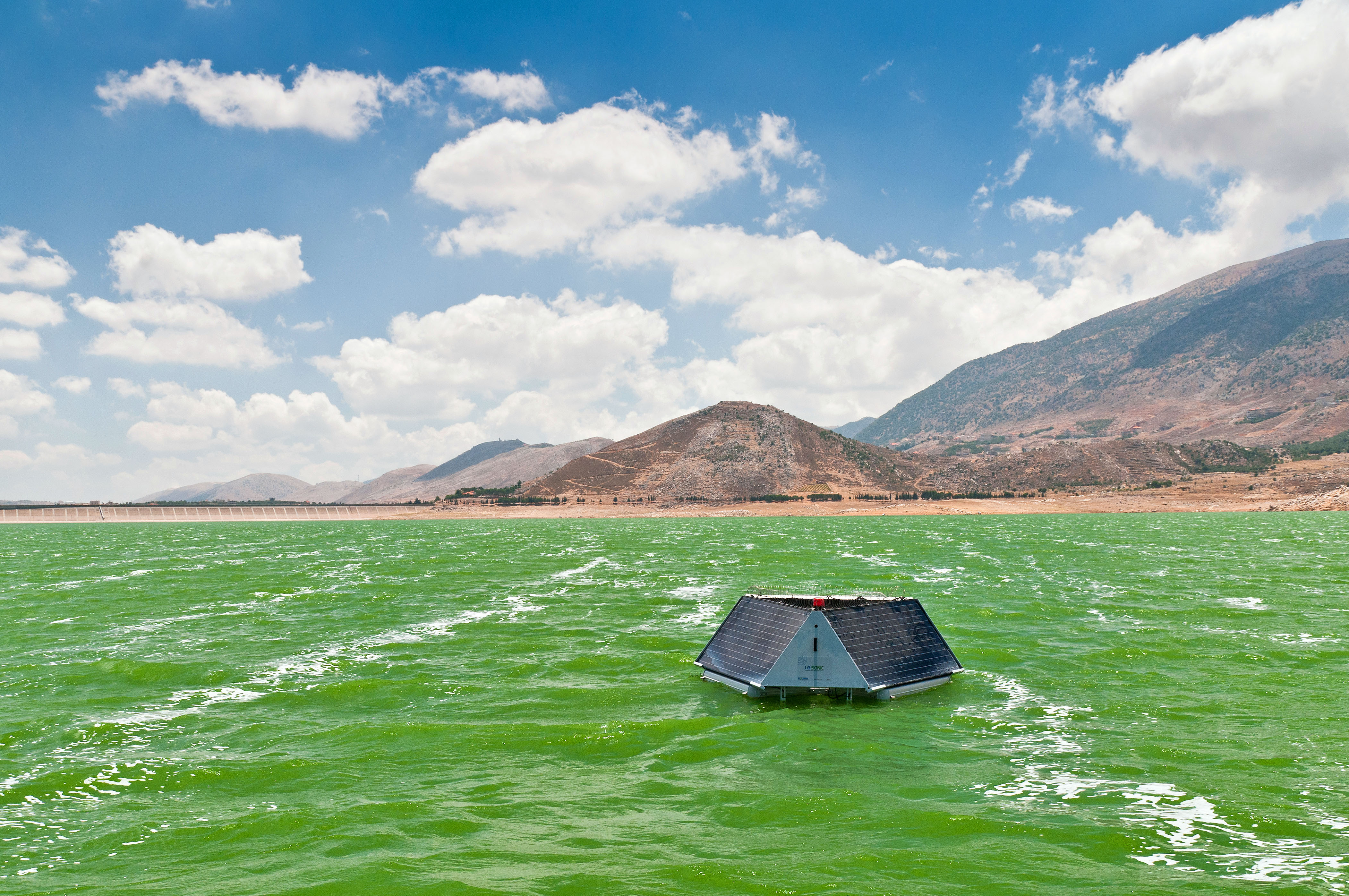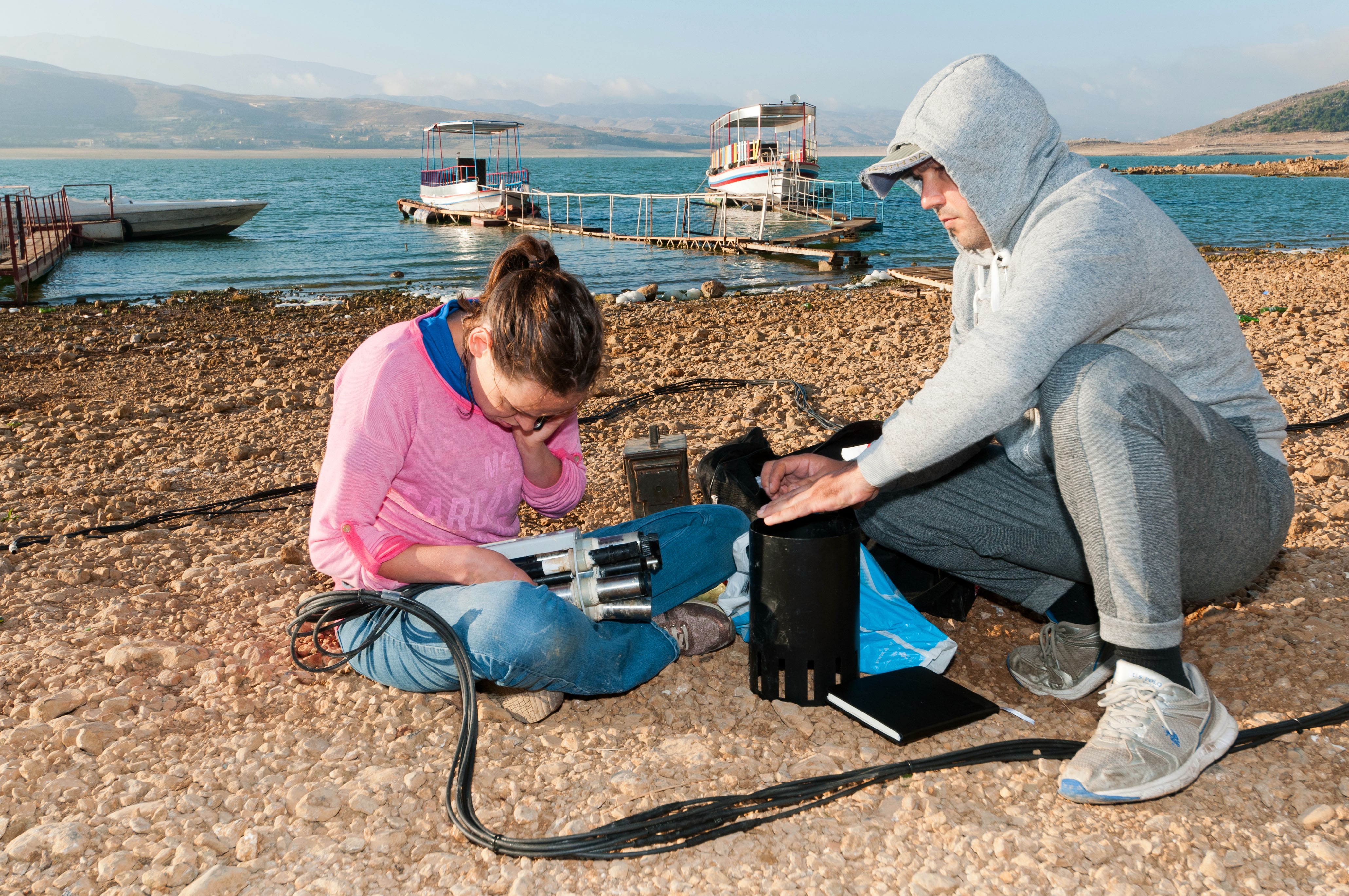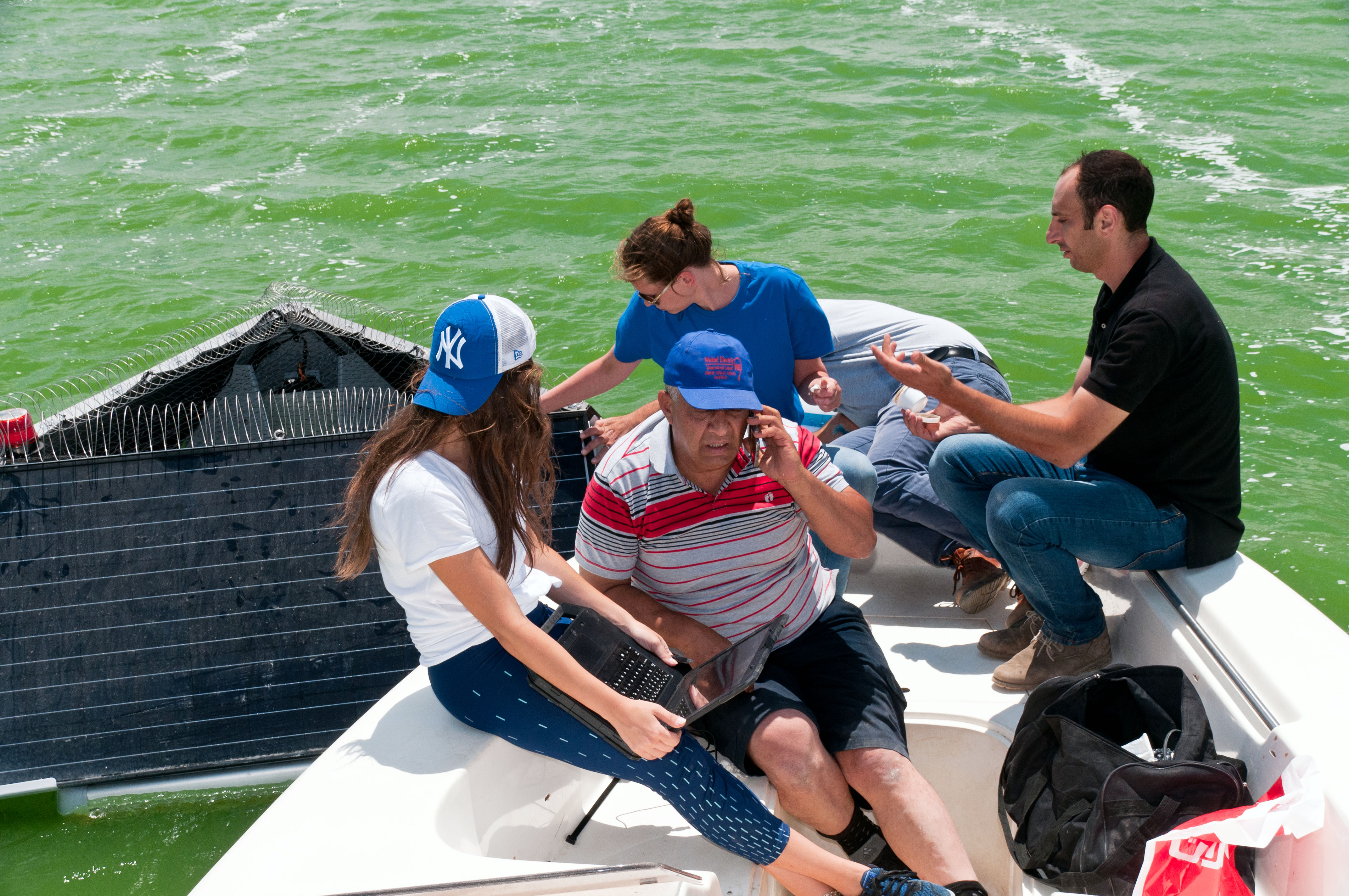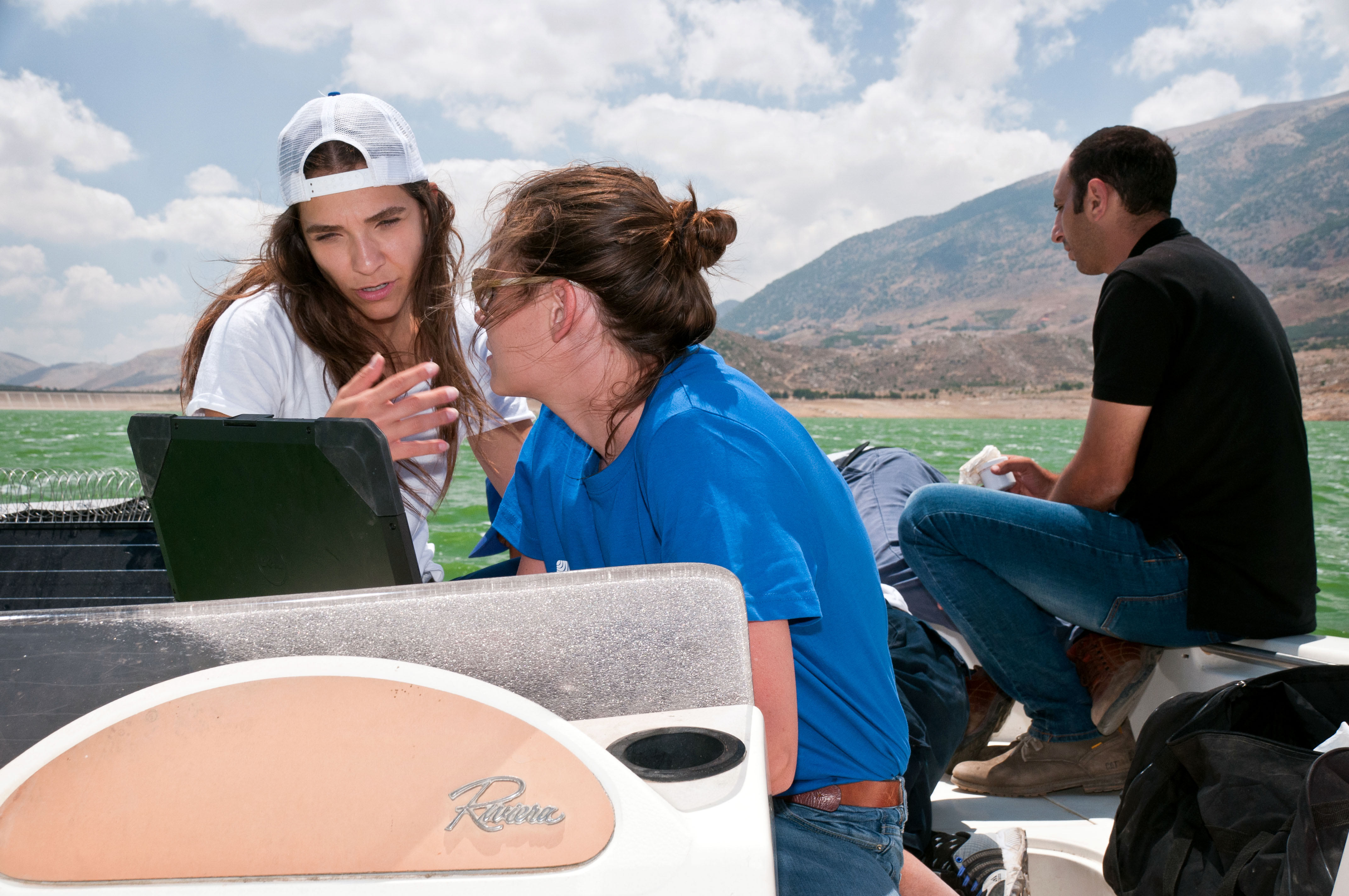Ultra-sonic algae control devices and algae monitoring stations installed in Lake Qaraoun, Lebanon
02 August 2018Ten ultra-sonic algae control devices and algae monitoring stations are installed in Lake Qaraoun! This ultrasound technology significantly reduces and prevents the growth of new algae.

The Litani River is the longest river in Lebanon and a major source for drinking and irrigation water for the Bekaa and the South and an important source for hydropower. The river debouches into Lake Qaraoun and is heavily polluted by municipal waste, wastewater and excessive use of fertilizers and pesticides in agriculture. This has led to a large amount of blue algae in Lake Qaraoun, causing harmful toxins and damaging the lake’s ecology. Large fish kills in Lake Qaraoun have triggered large media attention in past years.
 Checking the devices on shore
Checking the devices on shore
Blue algae are capable of travelling through the water vertically due to their possession of gas vesicles. The ultrasonic sound waves create an ultrasonic pressure in the top layer of the water. This ultrasonic sound barrier prevents the algae from rising to the surface and absorbing light for photosynthesis. Therefore, algae are no longer capable of growing further. The algae will die while the cell wall remains intact, preventing the release of toxins from the algae into the water. The algae will sink to the bottom of the water reservoir and are degraded by the bacteria present.
 Installation of the ultra-sonic algae control devices
Installation of the ultra-sonic algae control devices
Last week, World Waternet, LG Sonic and the Litani River Authority have successfully installed 10 ultra-sonic algae control devices and algae monitoring stations in Lake Qaraoun. First measurements of algae concentration are showing promising results. Within a few weeks we’ll be able to share first official results! To be continued…

The installation is part of the project "Strengthening the Lebanese Water and Agriculture Sector". With this project, WWn, Wageningen University & Research (WUR), Acacia Water and the Dutch Embassy in Lebanon are supporting Lebanon with their Dutch expertise in water and agriculture.